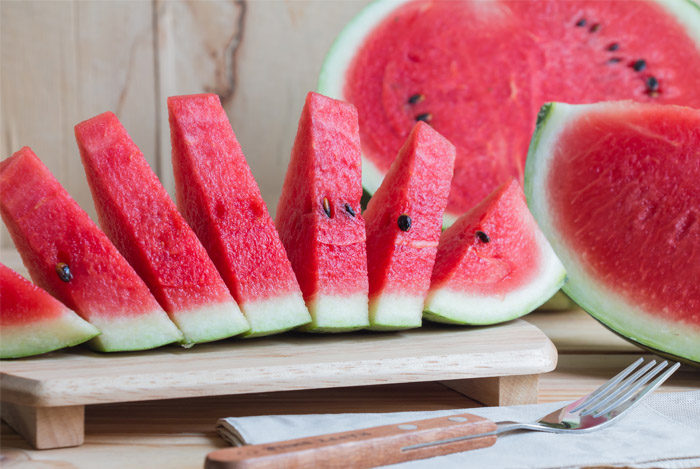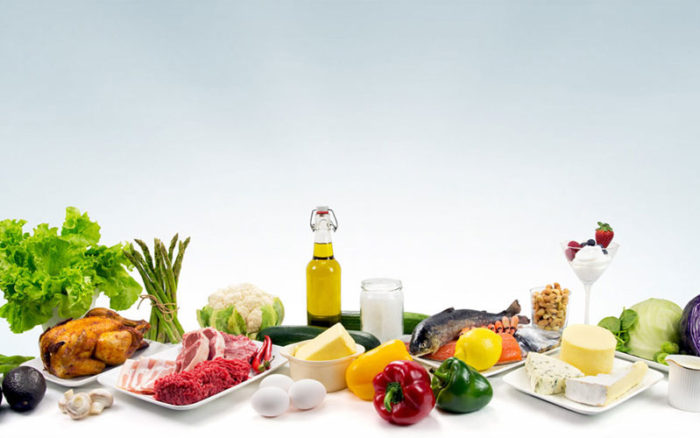The health benefits of watermelon include the prevention of kidney disorders, high blood pressure, the prevention of cancer, diabetes, heart disease, heat stroke, macular degeneration and impotence.
The question is, why is there so much craze for the watermelon? At first glance, it may seem like nothing more than a big ball of water. We all know that there is nothing more refreshing than a big, chilled wedge of watermelon on a hot, summer day and it does sport a stylish scientific name of Citrullus Lanatus, but what’s the real reason so many people flock to grocery stores every summer to buy a big, awkward fruit like this one? Well, it is hard to narrow it down to a single reason; there are actually a lot of them.
What Is Watermelon?
Watermelons are considered a vine-like flowering plant that is actually native to Southern Africa, and it is there that the wild varieties are in the greatest abundance, ranging from super sweet to bitter, and varying in size as well. They moved north to Egypt, and were cultivated in the Nile River Valley, and eventually moved east into China, roughly 1,000 years ago. Now, watermelon is grown around the world, and in 44 of the 50 states in America. It is specifically selected to grow larger and juicier, resulting in the huge fruits that many of us are familiar with. The green outer rind is hard and fleshy, and rarely eaten, while the interior is soft, red or pink flesh containing the many seeds; this is the part of watermelon which is typically eaten.
As for accessing the total medicinal benefits of watermelons, it is highly dependent on the variety of watermelon and the ripeness. Beta-carotene and lycopene is usually bio-available in the highest quantities once the watermelon is completely ripe, and don’t be afraid to eat some of the watermelon rinds; there are quite a few nutrients in there as well, particularly the roughage and fiber.
Nutritional Value Of Watermelon
The long list of healthy or beneficial effects of watermelons are mainly derived from its unique nutrients, vitamins, minerals, and organic compounds. These include significant amounts of vitamin C, calcium, magnesium, fiber, protein, and a very large amount of potassium. Furthermore, they contain vitamin A, vitamin B6, niacin, thiamin, and a wide variety of carotenoids and phytonutrients, including lycopene!
These components of watermelons contribute to its major impact on health; let’s explore some more details of those benefits below.
Health Benefits Of Watermelon
Health benefits of watermelon include:
Treats Kidney Disorders
Watermelons contain a lot of potassium, which is very helpful in cleaning or washing out the toxic depositions in the kidney. Moreover, it is helpful in reducing the concentration of uric acid in the blood, thereby reducing the chances of kidney damage and the formation of renal calculi in that organ. In addition to this, being high in water content, it induces frequent urinating, which is again helpful for cleaning of the kidneys. Also, the antioxidants present in watermelon ensure good health of the kidneys for a long time and reduce signs of premature ageing like wrinkles and age spots on the skin.
Prevents Heat Stroke
Watermelon is effective in reducing both your body temperature and blood pressure. Many people in tropical regions eat this fruit every day in the afternoon during the summer to protect themselves from heat stroke. In India, you will find the fruit being sold by vendors on almost every street during the summer season. The high amount of water contained in watermelon also stimulates a release of excess liquid in the form of sweat, which cools your body further during hot summer days.
Regulates Blood Pressure
The good amount of potassium and magnesium that is present in watermelons is very beneficial in terms of bringing down blood pressure. Potassium is considered a vasodilator, meaning that it releases the tension of blood vessels and arteries, thereby stimulating increased blood flow and reducing the stress on the cardiovascular system. The carotenoids present in these fruits also prevent hardening of artery walls and veins, thereby helping to reduce blood pressure and the chances of blood clots, strokes, heart attacks, and atherosclerosis.
Prevents Cancer
Watermelons have been in the public eye more and more in recent years, primarily because of their impressive level of lycopene, a carotenoid phytonutrient compound that is increasingly being linked to cancer prevention. As the years go by and the studies continue to bring in consistent results, lycopene has been shown to significantly reduce the risks of prostate, breast, colon, lung, and endometrial cancer. All in all, between the antioxidant potential of vitamin C and the impact of lycopene, watermelon is a great anti-cancer fruit!
Controls Diabetes
Diabetic patients, who are supposed to have a low energy and low sugar diet, often complain about starving since they don’t get to eat their staple diets, which gives them the feeling of being half fed. Watermelons can be a good supplement for them. In spite of being sweet in taste, a thick wedge will give you very few calories, since ninety-nine percent of its total weight is composed of water and roughage. Moreover, the various vitamins and minerals such as potassium and magnesium help in proper functioning of insulin in the body, thus lowering the blood sugar level. Arginine, another component found in watermelons, is very effective at enhancing the impact of insulin on blood sugar. Diabetic patients can also have curries, steaks, and salads made from watermelon rinds, which are even lower in sugar.
Heart Care
Lypocene, a carotenoid found in abundance in watermelon, improves cardiac functions. Beta-carotene, known for its remarkable antioxidant and anti-ageing properties, also keeps you young at heart and prevents age-related cardiac problems. The roughage in watermelon and its very low energy, along with help from vitamin-C, carotenoids and potassium (potassium cuts the risk of a heart attack), helps to reduce cholesterol and keep your heart safe from a variety of dangerous conditions.
Macular Degeneration
Don’t worry about eye health and macular degeneration if you eat plenty of watermelons, because, between the beta-carotene, vitamin-C, lutein, and zeaxanthin, your eyes are well protected. They will ensure the protection of your eyes from age-related blindness and degeneration, and these antioxidants will protect your eyes from other age-related ailments such as drying up of eyes and optical nerves, as well as glaucoma.
Cures Impotence
Arginine, present in watermelon, is beneficial in curing erectile dysfunction, and the stimulating nature of the chemical can boost libido, reduce frigidity and give a kick start to your love life after you enjoy a few slices of watermelon together!
Other Benefits: Lypocene is found to be effective in repairing damaged tissues. Watermelon seeds are rich in beneficial fats and proteins. Watermelons also contain phytonutrients which have very good effects on the health and proper functioning of internal organs, eyes, and the secretion system.





